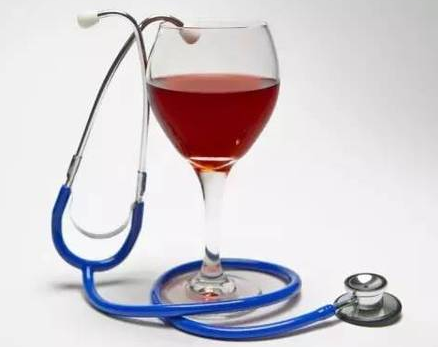Many studies have hinted that alcohol, in moderation, can do a heart good. But new research suggests that moderate drinkers are no more likely than teetotalers to have clear arteries.
很多研究暗示,适度饮酒对心脏有好处。但是新的研究表明,适度饮酒者并不比不饮酒者的动脉更顺畅。
The scientists looked at almost 2,000 patients who underwent CT angiography -- an imaging test that detects "plaques" in heart arteries.
科学家观察了大约2000名经历了CT血管造影的患者,血管造影是一种检测心脏动脉中的"斑块"的成像测试。
Overall, there was no association between people's drinking habits and their odds of showing clogged vessels.
总体而言,人们的饮酒习惯和他们出现血管阻塞的几率之间没有联系。

Researchers said an advantage of the new study is that it used objective measurements.
研究人员表示,这项新研究的一个优点是它使用了客观测量的方法。
"No prior studies have assessed the relationship between alcohol consumption and the presence of coronary heart disease," said lead researcher Dr. Julia Karady. "We could not find any relation between the presence of coronary artery disease and alcohol consumption."
首席研究员朱莉娅·卡拉迪博士说:"之前的研究没有评估饮酒与冠心病之间的关系。我们没有发现冠状动脉疾病和饮酒之间的任何关系。"
At the same time, she added, there was no evidence that heavier drinking raised the risk of clogged arteries.
同时,她补充说道,没有证据表明重度饮酒会增加动脉阻塞的风险。
However, groups like the American Heart Association (AHA) warn against excessive drinking, because it can raise blood pressure and contribute to heart failure and other cardiovascular problems.
然而,美国心脏协会(AHA)等团体告诫人们不要过度饮酒,因为它可以使血压升高并导致心力衰竭和其他心血管问题。
In general, "moderate" is defined as no more than one glass of alcohol a day for women, and no more than two a day for men.
一般来说,"适度"定义为女性每天不超过一杯酒,而男性每天不超过两杯。
But those studies do not prove that alcohol, itself, protects the heart -- in large part because alcohol also carries risks.
但是这些研究不能证明酒精本身能保护心脏--很大程度上是因为酒精也会带来风险。













